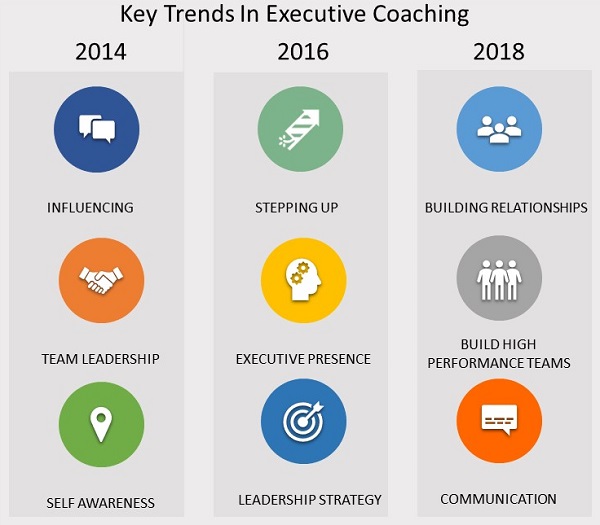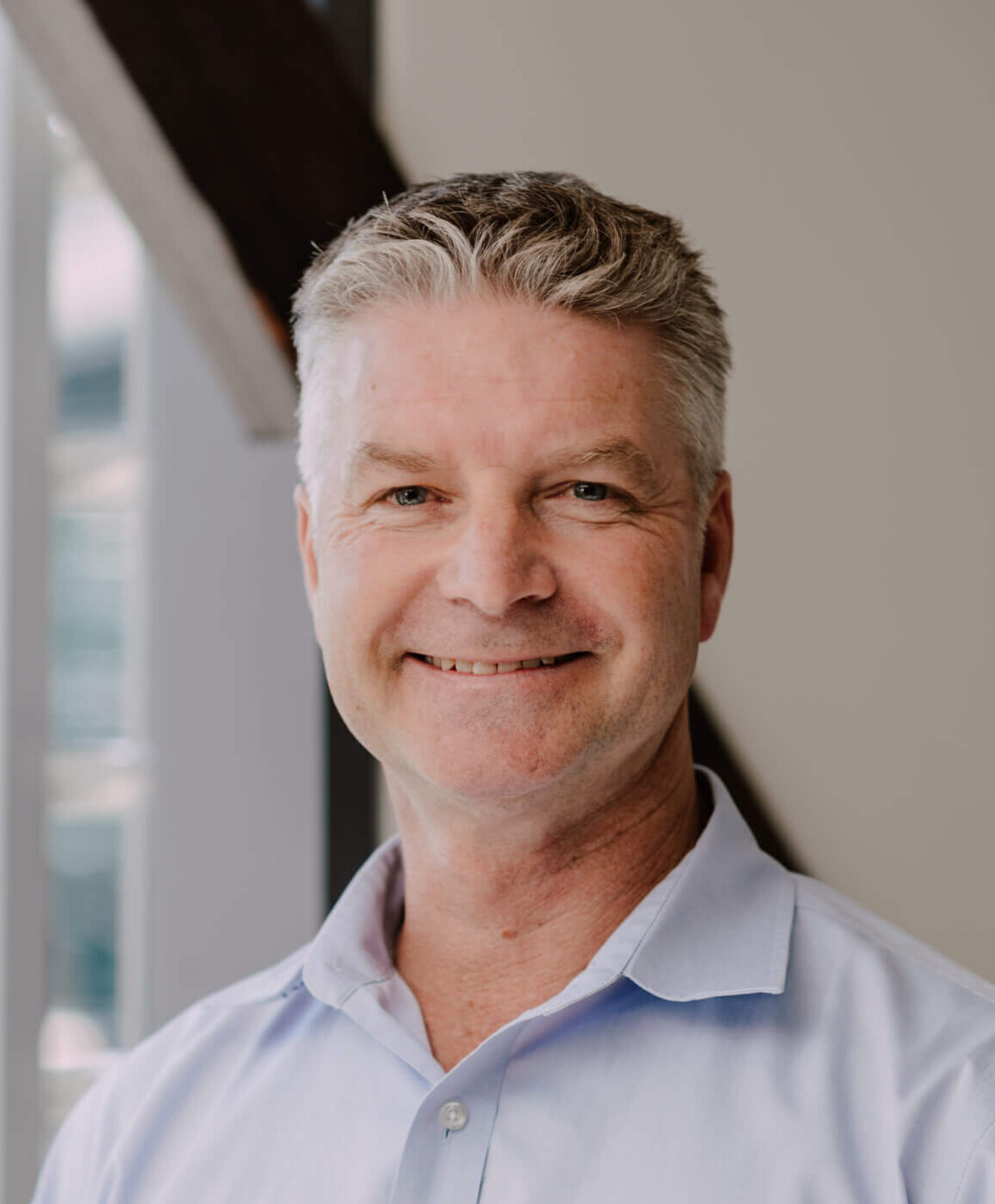
Adam, not his real name, is a remarkably successful executive at an ASX top 20 company. He is a rainmaker. Clients love him. He is within touching distance of being the next CEO. But he has been told he is never going to make it unless he develops his relationship skills – the ability to inspire trust, co-operation and collaboration among peers, employees and business partners. To be more truly human by demonstrating empathy, vulnerability, understanding himself and his impact on others.
Adam’s story correlates with our own coaching engagement data which we have been tracking and reviewing over the last five years.
The data reveals the themes emerging from over 2000 Stephenson Mansell Group (SMG) executive coaching engagements since 2014. In that short period of time, organisational priorities seem to have flipped from helping leaders develop their individual leadership style, to developing their relationships with others. The data indicates the top three themes developed through executive coaching in 2019 are: “building relationships”, “building a high-performance team” and “communication”.
This finding affirms effective leadership is more about building stronger connections between people than it is about the attributes or style of individual leaders. The 2019 data is based on 440 coaching engagements with executives from over 100 organisations and sourced from the digital platform supplied by our partner CoachLogix.
When we have collated this data in previous years, coaching participants own career and leadership development was at the fore. In 2016, the top three areas to work on were “stepping up” (transition into a new role), executive presence and leadership strategy. In 2014, the most prevalent themes were influencing, team leadership and presence & self-awareness.

In the past leaders often relied on gaining a sense of confidence from organisational structures, systems, processes or even market-truisms that once seemed unshakeable. However systemic shifts such as the rise of the “flat organisation”, the “agile workforce” and the “gig economy” are replacing hierarchical leadership with “horizontal leadership” which relies heavily on the ability to create quality relationships inside and beyond organisational walls. What that means is that leaders need to help people anchor their sense of confidence elsewhere – which includes in the quality relationships that are nurtured through collaboration and co-creating.
As the World Economic Forum report on future skills argued, it is human “soft skills” that will become increasingly valuable — skills such as empathy, context sensing, collaboration, and creative thinking.
As companies and institutions in Australia respond to the outcomes of several deeply concerning royal commissions a renewed emphasis on ethical leadership is emerging. Leaders set the climate and shape the culture within organisations and therefore how relationships are formed and nurtured in these large systems are set by the leaders themselves.
5 tips on building relationships
Coaching leaders to build relationships requires a deep knowledge of psychology and emotional intelligence.
- Map your relationships and prioritise them: be conscious of who you need relationships with and what type of relationships – who is your inner circle or “personal board of directors” and who is your broader network?
- Engage and connect. It’s always about your audience whether one on one or in groups. Listening and being curious without judgement is key. Understanding your audience and finding quickly how to build trust and rapport, build empathy and ask yourself: what do you want others to experience by connecting with you?
- Work on your body language, ensure you are open and receptive to others.
- Energise. People are time poor, think about the angle of why they would want to meet with you? What’s in it for them?
- Develop self-awareness. We all have blind spots and so continually ask for feedback from key relationships and trying different approaches with different personality styles.
How to build high-performance teams
Our coaches are setting goals to develop teamwork largely around three sequential steps:
- planning and prioritisation – helping identify what high performance looks like in the context of change where “less is more, done well”.
- delegation and empowerment – noticing the dynamics of the team which are both similar or different to the system they operate within.
- accountability and ownership – leaning into differences amongst the team and different members “learning edge” so that the team understands and holds their edge.
The need for building relationships beyond the traditional context of team is becoming more and more sought after. Building relationships skills starts with self-awareness and then incorporates curiosity to grow, learn and seek feedback, being courageously humble with the team and share the load and backing own judgment and being prepared to take some risks.
Highly sought-after communication skills
The most common three coaching themes within communication are:
- engaging stakeholders through a clear and compelling vision to inspire and bring them on a journey. Coaching tips include “less detail, more influencing” and “initiate engagement, don’t wait”.
- help in communicating and cascading vision to large, distributed audiences.
- building “voice”, raising profile and increasing assertiveness and confidence in communicating upwards and outwards.
As organisations flatten and become more fluid and ecosystems expand further outside the “four walls”, stronger and more targeted connections are essential for success. Through our lens of currently coaching over 400 leaders in many of Australia’s largest institutions, we can see they have turned their attention to making and maintaining those crucial connections within their organisations, with their clients, suppliers and the communities they serve.
Over the last 5 years we have seen a shift in the focus of executive coaching from individual leadership style to relationship building which in turn is giving organisations a better return on coaching investments.
Adam is hitting a glass ceiling on his way to CEO but armed with enhanced relationship skills developed through coaching, he will smash through and be equipped to embrace this next opportunity!










